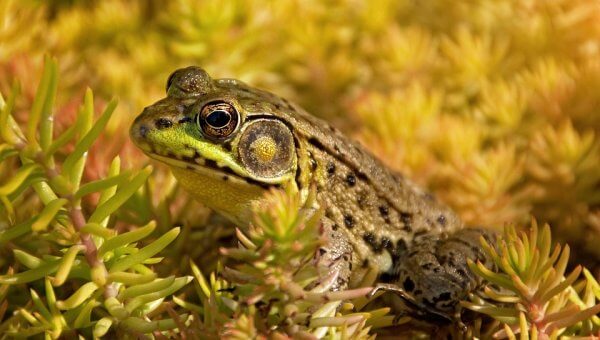TeachKind Science Was Hoppin’ Busy This Fall Promoting Kind Frog!
Throughout fall 2024, PETA’s TeachKind Science was hoppin’ busy attending 6 events across the country, educating K–12 teachers about humane non-animal dissection. Through interviews, presentations, demonstrations, and immensely popular interactive dissection stations, we launched the new Kind Frog, a cutting-edge tool that’s transforming science education by allowing students to explore biology without cutting apart once-living animals.
Kind Frog Makes Waves at a Leading Florida Education Conference
From October 22-26, TeachKind Science made waves at the annual conferences of the Florida Association of Science Supervisors (FASS) and the Florida Association of Science Teachers (FAST) in Tampa. With over 120 district-level science education supervisors at FASS and a bustling 500 science teachers at FAST, our exhibit was packed with curious minds and enthusiastic conversations.
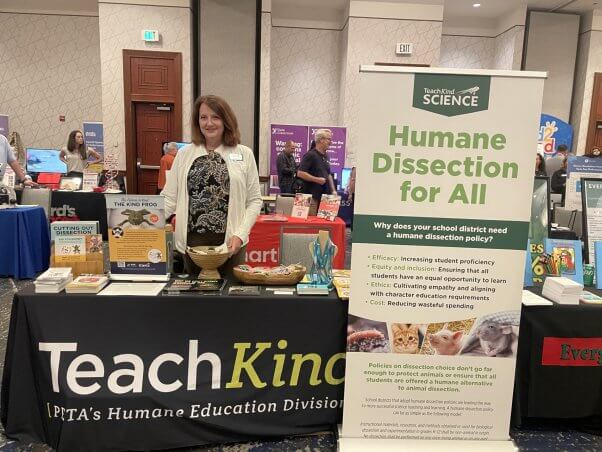
The star of the show? The new Kind Frog! One science supervisor is eager to promote Kind Frog and has requested professional development for teachers ahead of spring dissections, and other districts plan to use Kind Frogs for their summer programs. We even had one teacher declare our booth the best in the expo hall!
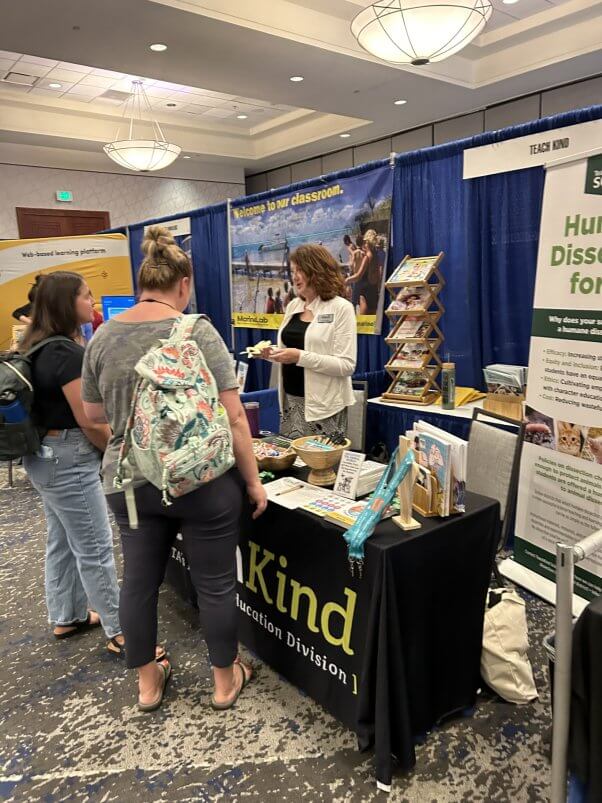
With 40 new pilot program sign-ups this year and countless meaningful connections, we’re thrilled to inspire a kinder approach to science education.
Educators in New Mexico Embrace Animal-Free Dissection
Furthering PETA’s focus on ending experiments on animals, TeachKind Science, in collaboration with Animal Protection New Mexico (APNM) and Animalearn, participated in the New Mexico Science Teachers Association’s (NMSTA) fall conference. Staffer Morgan joined a dynamic dissection discussion panel where educators and organizations explored the challenges of traditional animal dissection, the benefits of animal-free alternatives, and the gaps in New Mexico’s outdated dissection choice policy.
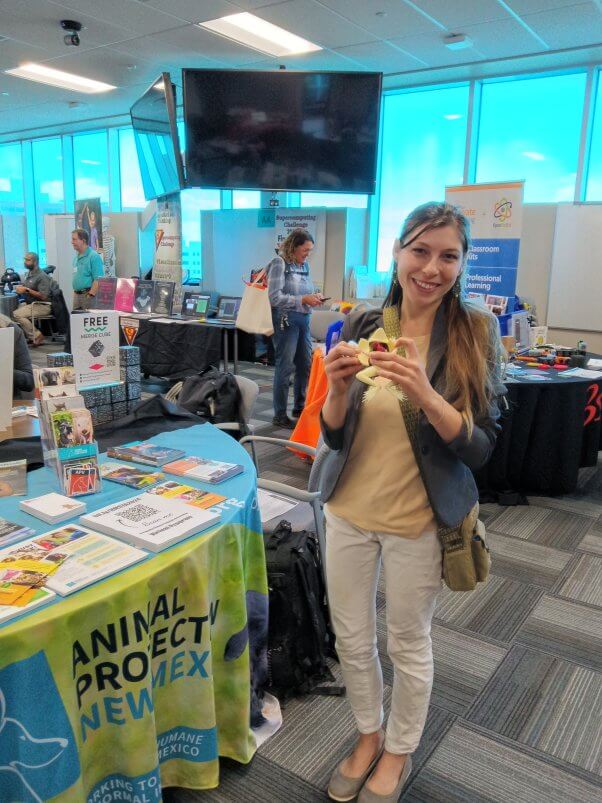
Science teachers from all over the state, many in low-income and rural areas, were excited to hear that TeachKind Science has a free pilot program as a humane resource for teaching anatomy. One teacher from the panel has already joined the pilot program and is rallying her colleagues to make their school fully animal-free.
New Orleans Teachers Love the New Kind Frog
Next, TeachKind Science exhibited at the National Science Teaching Association (NSTA) Conference in New Orleans, held from November 7-9. Here, we debuted our first-ever Kind Frog dissection stations, where teachers experienced Kind Frogs first-hand.
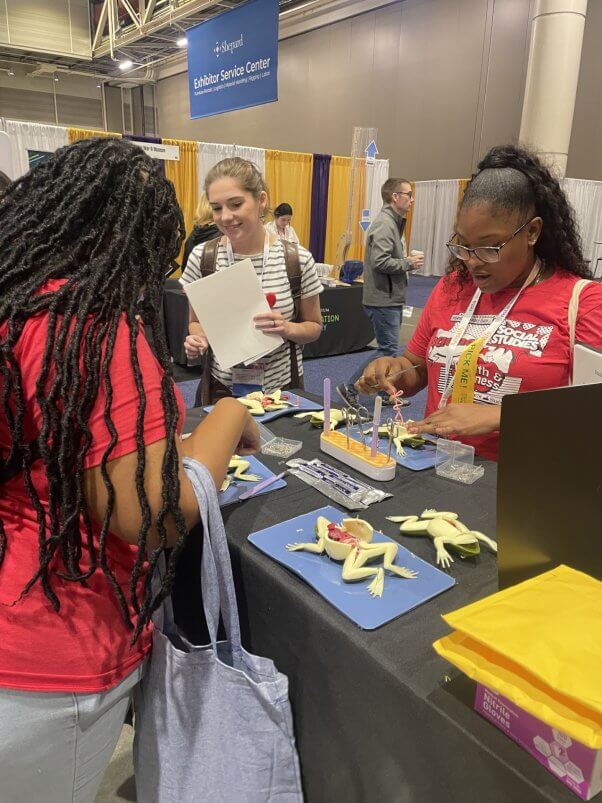
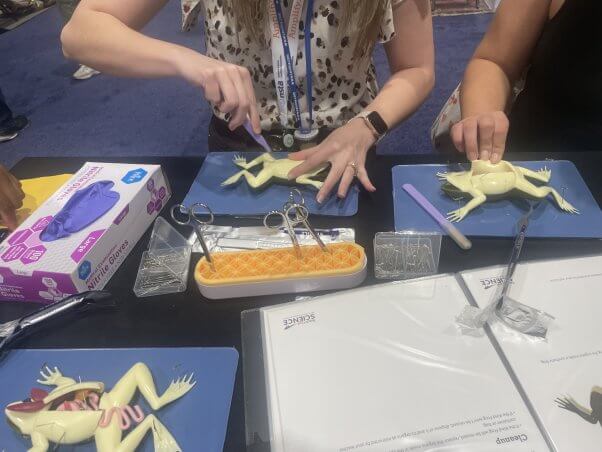
As the expo hall doors opened, two teachers conducting Kind Frog dissections quickly attracted a crowd, even sparking curiosity among other exhibitors. Educators were enthusiastic about the humane alternative to animal dissection and excited to learn about our free pilot program. We distributed 200 Kind Frogs and postcards, with 30 teachers requesting more information!
TeachKind’s Success at a Science Education Conference in Sacramento
Then, TeachKind Science made its mark at the California Association of Science Educators (CASE) conference in Sacramento from November 8-10. We connected with 68 enthusiastic teachers who signed up for email updates, gave away 100 copies of Unlocking the Animal World books, and handed out 500 Kind Frogs!
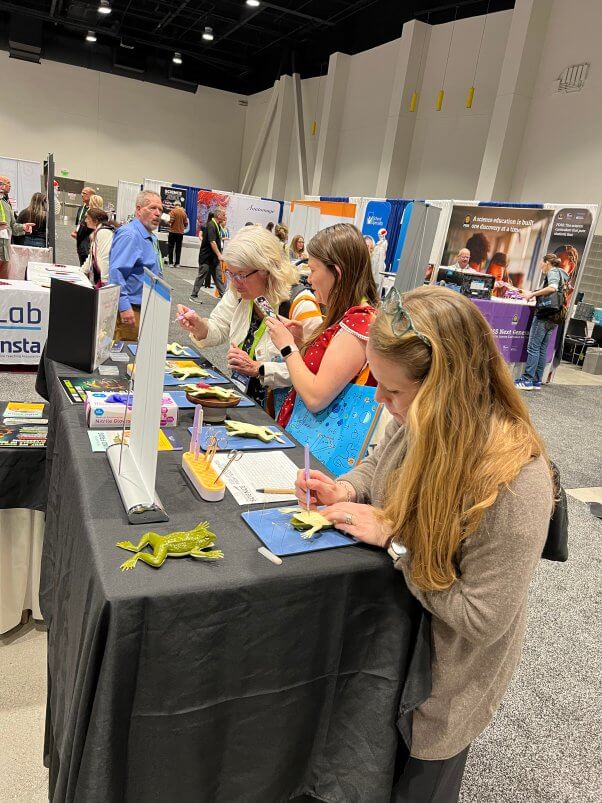
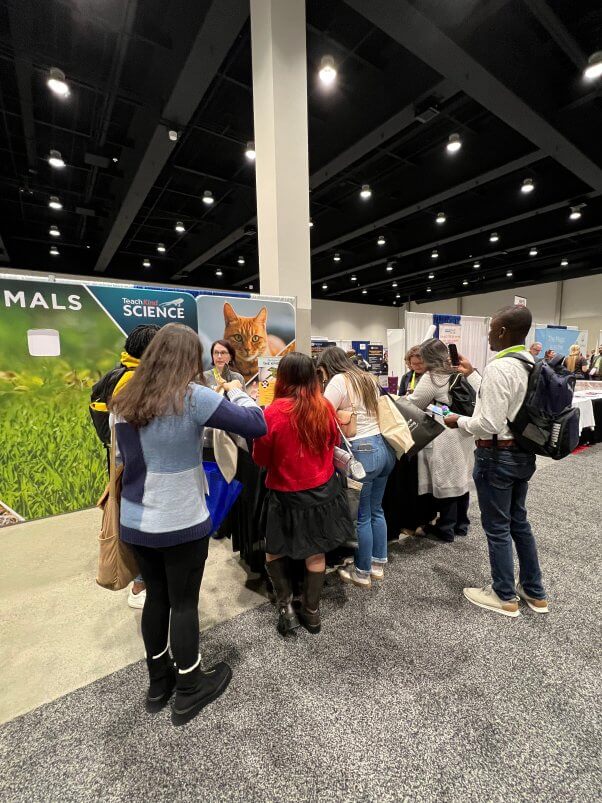
Our dissection stations were a standout attraction—and teachers and exhibitors were captivated by the quality and affordability of our models. Some teachers shared ways that animal dissection had deterred them from biology, highlighting the importance of non-animal dissection methods.
Biology Teachers Praise Kind Frog in Anaheim
Our final stop this fall was at the National Association of Biology Teachers (NABT) conference in Anaheim from November 14-15. where we handed out nearly 400 Kind Frogs to excited teachers! Everyone loved the interactive dissection stations, and attendees praised Kind Frog’s realistic feel, affordability, and potential for trauma-free dissections.
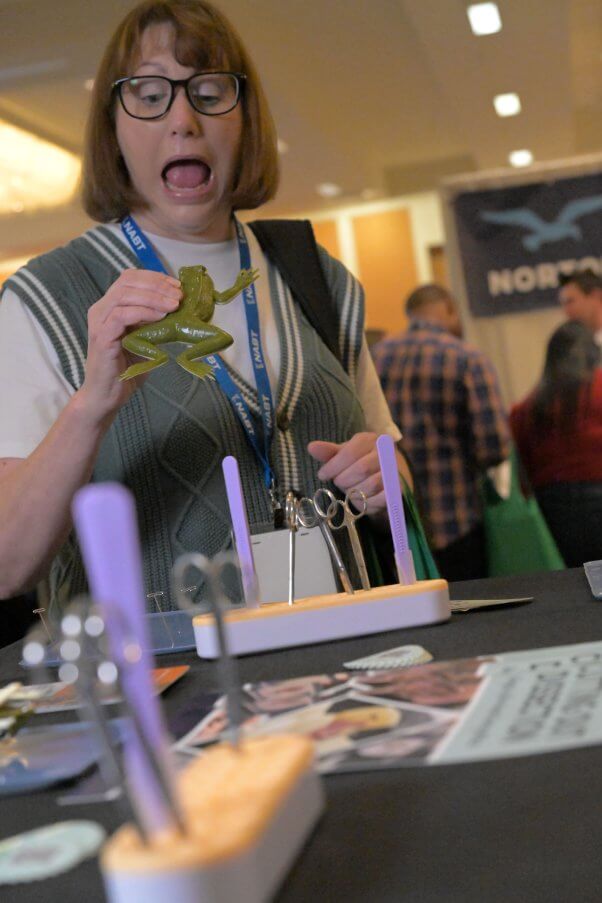
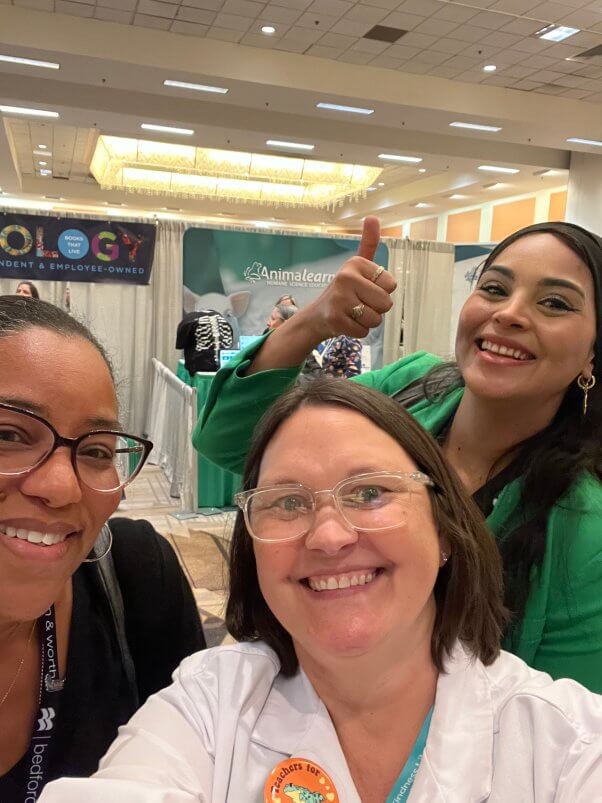
Learn More!
This fall, TeachKind traveled the country to spark compassion for animals, and we can’t wait to inspire schools, educators, and parents to do even more to end speciesism in 2025. Join us by signing up for our science education pilot program to take an effective, ethical, and economical approach to dissection without harming once-living animals.

